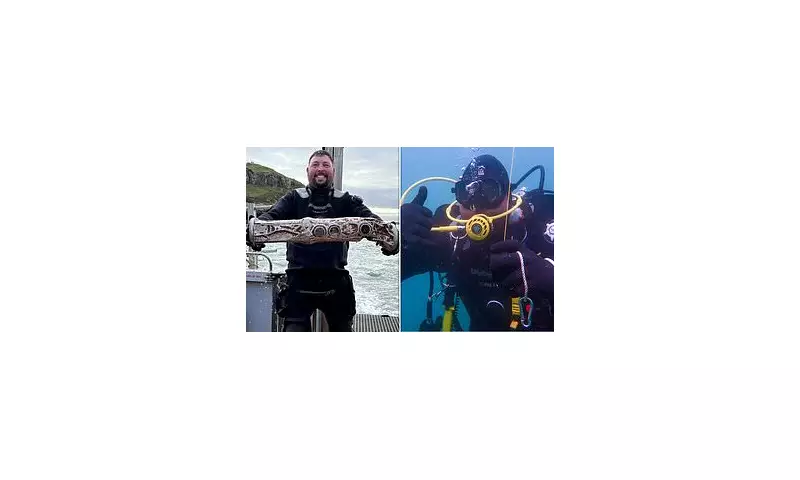
A Russian device designed to detect submarine movements has been discovered off the Welsh coast, raising serious security concerns about Vladimir Putin's surveillance operations in UK waters.
Underwater Discovery in Protected Waters
Volunteer divers from Neptune's Army of Rubbish Cleaners (NARC) made the alarming discovery during a routine clean-up operation near Wooltack Point, off Skomer Island in Pembrokeshire. The cylindrical device, thick with barnacles and marine growth, was identified as a sonobuoy - equipment typically deployed by aircraft to locate or track submarines.
Tim Smith-Gosling, the diver who discovered the suspected Russian device, recovered it from waters that form one of Wales' most important marine conservation zones. The area is protected for its seabird colonies, grey seals and rich underwater habitats, attracting thousands of visitors and researchers annually.
The device has been handed over to authorities for formal assessment, though its appearance is consistent with equipment used by foreign militaries for underwater monitoring.
Escalating Tensions with Russian Naval Presence
The discovery comes as the Russian spy ship Yantar continues to operate on the edge of UK territory north of Scotland. Defence Secretary John Healey issued a stark warning to the Kremlin, stating: 'We see you. We know what you're doing. And if the Yantar travels south this week, we are ready. We have military options ready.'
British forces have been closely monitoring the Yantar, which is specifically designed for gathering intelligence and mapping crucial undersea cables. The vessel recently directed lasers at RAF pilots operating P-8 Poseidon aircraft, marking the first time a Russian spy ship has used such tactics against British forces.
Mr Healey confirmed he has changed the navy's rules of engagement to allow closer monitoring of the Yantar's activities in UK waters. He emphasised that anything disrupting British military pilots is 'deeply dangerous' and that the threat is being taken 'extremely seriously'.
Broader Security Implications
Security experts have expressed heightened concerns about Russian activity targeting the UK's undersea infrastructure. The National Security Strategy Committee warned in September that attacks on undersea cables could cause 'catastrophic disruption' to financial and communications systems.
The UK operates around 60 undersea cables connecting the country with the US, Scandinavia and mainland Europe. The Yantar is part of what experts call a Russian 'ghost fleet' - ordinary-looking ships that Moscow claims are research vessels but are actually bristling with surveillance equipment and carry manned and unmanned submarines.
NARC, which has removed more than 1,000 tonnes of debris from Welsh waters over the past two decades, says it will continue regular clean-up programmes to protect marine environments from hazards. A spokesperson indicated that further details about the recovered device will be released once authorities complete their analysis.






